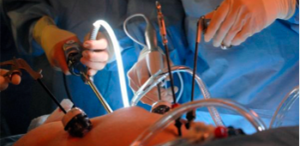
Bariatric surgery is an excellent solution for those who desire to lose excess weight and improve their lifestyle. Like all surgical procedures, however, there are potential risks and complications associated with the treatment.
For example, it is known that some patients are more sensible to alcohol after having a bariatric surgery. Following weight loss surgery, patients may be less tolerant to alcohol beverages due to higher absorption rates in their metabolic system. Our doctors at LIMARP® in Tijuana, Mexico, will educate you on the possible effects of alcohol after bariatric surgery and the measures you should take to drink safely.
Findings about Bariatric Surgery and Alcohol
According to a research study published in the Journal of the American Society for Metabolic and Bariatric Surgery, patients who undergo weight loss surgery are at a higher risk of losing control of their alcohol consumption.
After assessing approximately 1,500 individuals over the course of seven years, experts discovered an increase in drinking frequency. By the end of the research study, about 16 percent of participants stated that they consumed alcoholic beverages at least twice a week. In contrast, only six percent were drinking that often before undergoing surgery. When it comes to the link between bariatric surgery and alcohol, awareness is key.
Our team focuses heavily on patient education to minimize the risk of developing unhealthy drinking patterns after surgery.
Is it safe to drink alcohol after bariatric surgery?
Bariatric surgery can potentially lead to hormone fluctuations that affect alcohol consumption. It may also alter gene-related mechanisms in the brain. As a result, many individuals become more sensitive to alcohol following bariatric surgery.
One 2015 study evaluated the effects of alcohol on five volunteers. All participants had undergone weight loss surgery within the past four years. Each volunteer drank a screwdriver – an alcoholic drink consisting in half orange juice and half vodka – on an empty stomach. A catheter collected their blood for analysis. Every volunteer reached a blood alcohol level well over the legal drinking limit in a matter of minutes – much quicker than normal. This study also suggested that alcohol may stay in the body longer after bariatric surgery.
About Addiction Transfer
One popular theory that gained momentum about a decade ago was the idea of addiction transfer. This is the notion that overweight individuals are addicted to food. So, after bariatric surgery, they simply shift their addiction to something else – in this case, alcohol. However, the latest scientific research actually discards this theory.
In the 2017 study mentioned above, the research team examined whether binge eating was related to alcohol issues. No connection was discovered. Furthermore, those who quit smoking after bariatric surgery were not more likely to develop alcoholism. Although addiction transfer may be possible for some patients, it is certainly not the norm.
How We Can Help
When it comes to the link between bariatric surgery and alcohol, awareness is key. That is why our doctors take all the time necessary to discuss these issues with patients as early as initial consultations. It is important to know what to anticipate after your procedure so you can be prepared and well-equipped. For this reason, we educate our patients about these effects and also provide resources to help them prevent any complications.
Contact LIMARP Today
If you are considering bariatric surgery, it is important to understand how alcohol can affect the body after treatment. To learn more, schedule a consultation at our practice. Call our office at (619) 270-8823 or contact us online


